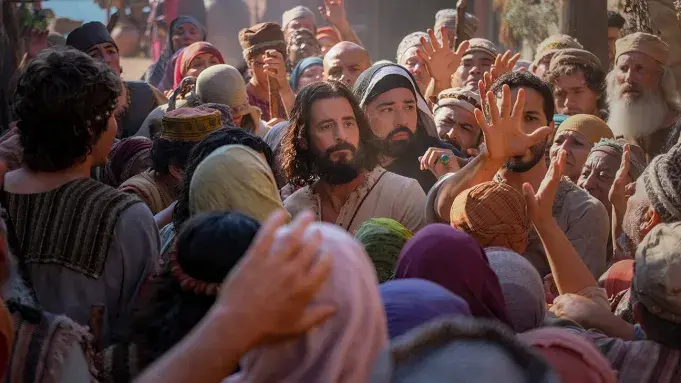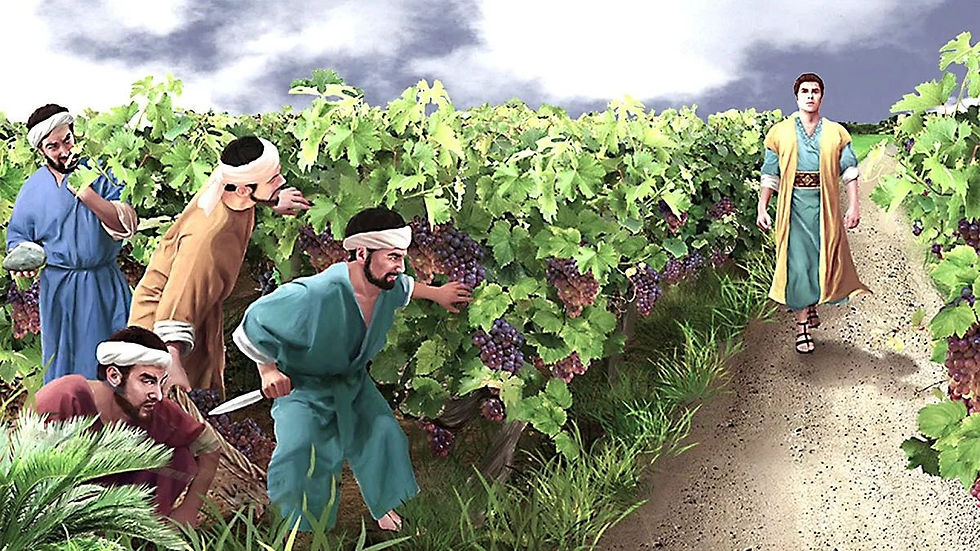Understanding Sin as Isolation and Destruction
- josnardionzon5
- Jun 10, 2024
- 4 min read

In the news: Pari sinakal ng Obispo.
The video went viral after capturing an altercation where an elderly bishop physically restrained a priest, causing him to tumble to the ground. What provoked the bishop to choke him? It’s the priest's words against the bishop's. (Read here for my commentary on the issue.)
What struck me most was the laypeople's reaction. They bravely confronted the bishop. It must have been a terrifying experience for the elderly bishop. This is rare in our hierarchical church, especially in Filipino culture where we often see bishops as demi-gods. These laypeople are active members of the church if not part of the parish pastoral council, and so they understand the power a bishop holds. What compelled them to speak truth to power, even if it was difficult or risky to do so?
The archdiocese suspended the priest, stripped him of his priestly duties and functions, and portrayed him as disobedient. Thereafter, some Catholics called for the expulsion or excommunication of the laypeople who confronted the bishop.
The archdiocese isolated the priest from his congregation by ruining his reputation. The justification for the suspension was disobedience. But this is long overdue when the priest, according to the archdiocese, has been defying the archbishop. But the suspension order was issued after the scuffle between the priest and the bishop or the elderly bishop lost his temper and choked the priest. Moreover, the scuffle caused a church scandal and even led the laypeople to confront the bishop. The suspension order should have been issued a long time ago when, as the archdiocese said, the priest defied the archbishop. A political scientist commented, "Why can't the Church call a spade a spade when it involves them?"
This incident reveals a pattern of isolation and destruction within the church. Ideally, the bishop, parish priest, and faithful should work together harmoniously, forming the people of God who are all equal through baptism. The power and authority of the ordained clergy should be used to serve the entire community, not to dominate it, in order to build a just and peaceful faith community. However, as a human institution, the church is imperfect and needs constant renewal. Divisions arise from the power structure, where bishops hold absolute authority and expect total obedience from priests and the faithful, akin to a parent's authority over a child. Consequently, the bishop's word becomes law, with severe penalties for defiance, such as suspension (which can be lifted when the priest shows repentance) or the defrocking of a priest (laicization or dismissal from the clerical state), which can be decided by the Pope or, in some cases, by the bishop. This division harms the voiceless and powerless, as those in power can isolate and weaken the local Christian community by undermining individual integrity.
In our Gospel reading today (Mk 3:20-35), we see a similar pattern. People followed Jesus because he preached with authority (he practiced what he preached) unlike the religious leaders of his time (they did not practice what they preached). His preaching was supported by good works: He healed the sick, restored sight to the blind, cast out demons, and raised the dead. No wonder the people were attracted to Jesus and followed him.
However, some scribes, representing the religious leaders, felt threatened by Jesus' growing community and tried to isolate him by damaging his reputation. They claimed his power came from the devil, casting doubt on the divine nature of his miracles and suggesting it was the work of the prince of darkness.
The first reading (Genesis 3:9-15) describes Adam and Eve's fall, marking the introduction of sin into the world according to the Bible. Initially, Adam and Eve lived in harmony with God and His creation. Sin disrupts this harmony, affecting relationships between humans and God, between humans themselves, and with nature.
God asked Adam, "Where are you?" Adam replied, "I heard you in the garden, but I was afraid because I was naked, so I hid myself." Before the fall, Adam had no fear of God and enjoyed fellowship with Him. What changed? Adam mentioned his nakedness and hiding, though he was already naked before the fall. What brought about this shame? Sin.
Sin brings self-awareness, especially in the presence of God, making us feel exposed, without cover. This can be likened to the openness we share with a true friend, where we reveal even our deepest thoughts without fear or shame, trusting in that friendship. However, sin causes shame before God, who knows our innermost thoughts and desires. This is why feelings of misery and self-loathing can penetrate our consciousness.
Sin makes us aware of ourselves and ignites a feeling of shame. Its consequence isn't just isolation from God and others, but also a breakdown in relationships. Adam blamed God for giving him the woman, implying he wouldn't have sinned without her, while the woman blamed the serpent. This pattern of isolation and destruction is the result of sin.
In the second reading (2 Corinthians 4:13-5:1), Paul discusses the need for daily renewal of our inner selves. Sin brings shame and a desire to cover ourselves, leading to the breakdown of relationships, exploitation, oppression, and war. Paul attributes these issues to the unquenchable thirst for power and wealth in our hearts, causing isolation and destruction among us.
Yet, Paul offers hope through Christ, who grants us access to God's abundant grace. Despite our sinful nature inherited from our first parents, God's grace allows us to overcome selfish desires and restore broken relationships with Him, our neighbors, and creation. Paul encourages us to renew ourselves daily and embrace Jesus' call to conversion and the kingdom of God.
Paul emphasizes that, while burdened by sin, we are recipients of God's abundant grace, freely given and not earned. Our faith responds to this gift, enabling us to build a community of faith despite our inclination to isolate and harm one another. God's grace empowers us to forgive and love one another daily by following His will.
Today, sermons often focus on reconciling our broken relationships with God, each other, and nature. Sin alienates us from God and each other, fostering destruction due to selfishness and greed. Faith transforms our doubts, affirming that goodness triumphs over suffering and death, and God conquers Evil through loving service, the Eucharist, and reconciliation.
Blessed Sunday!



Comments